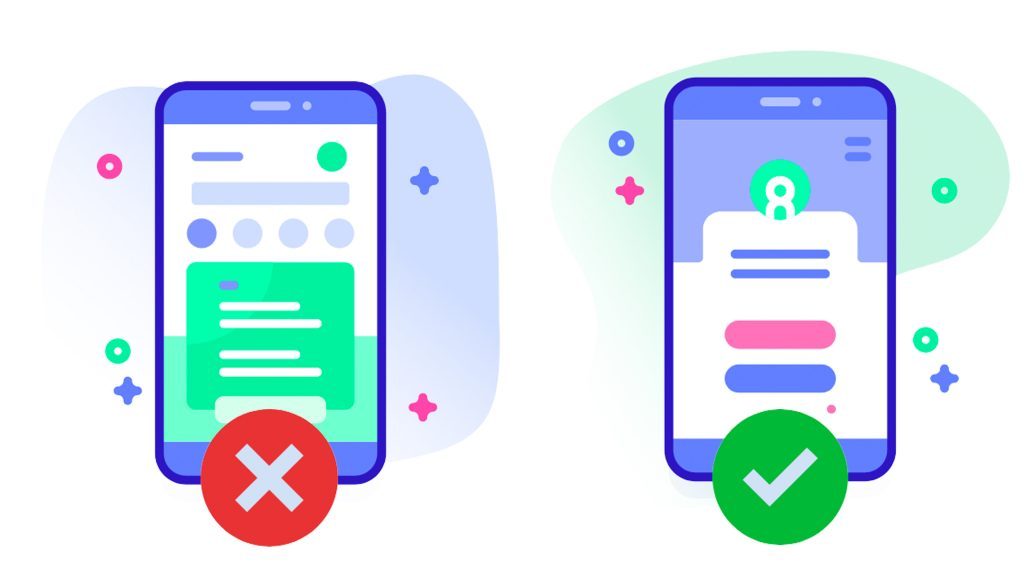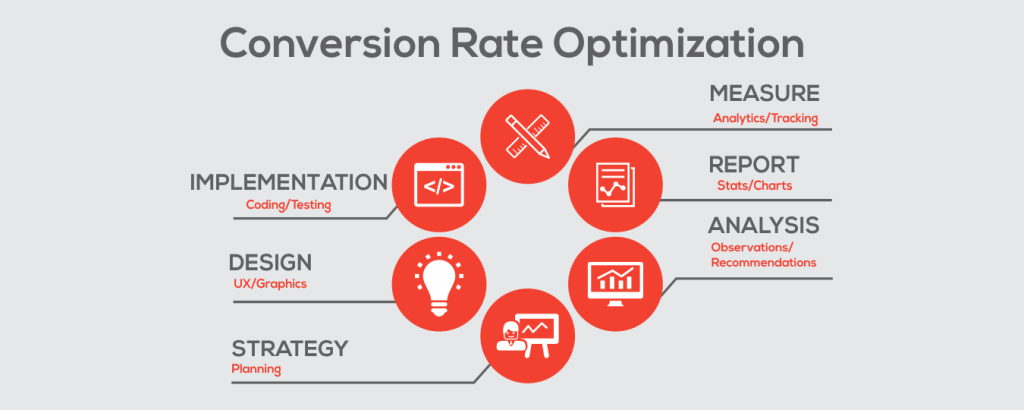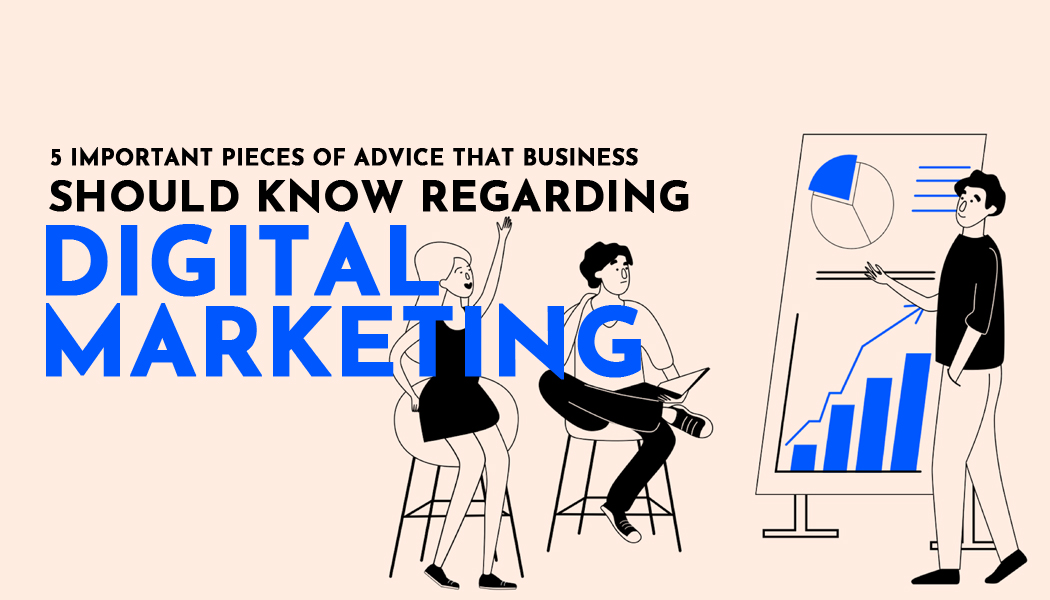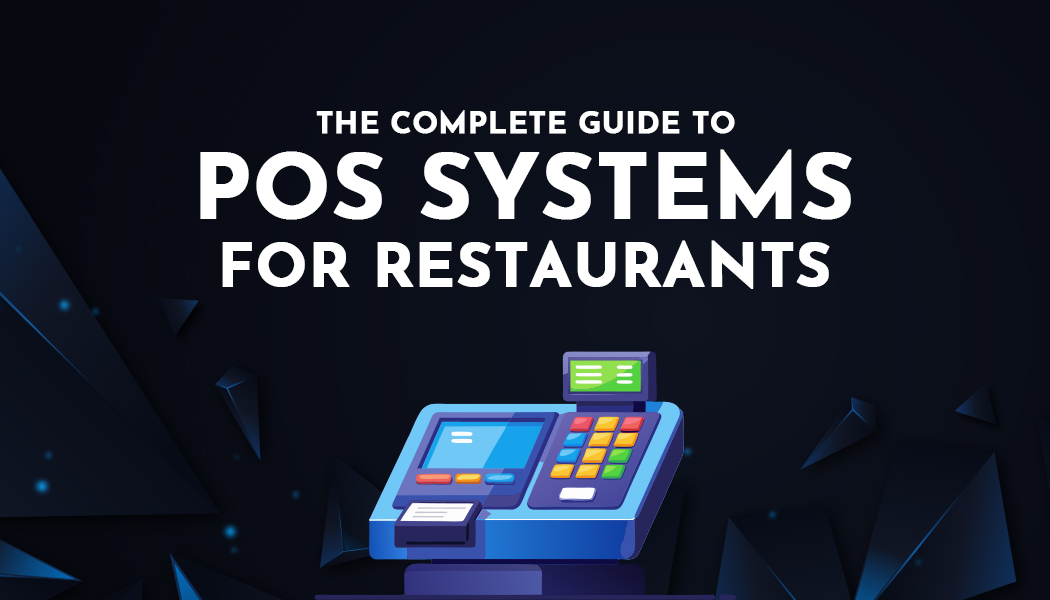5 Important Pieces of Advice That Business Owners Should Know Regarding Digital Marketing
Are you ready to take your business to the next level? If you're looking for ways to increase your online presence and attract more customers, then you're in the right place. Digital marketing is the key to success in today's business world, and there are some important pieces of advice that you need to know if you want to succeed.
In this blog post, we'll be sharing 5 essential tips that every business owner should know when it comes to digital marketing. From creating a strong brand to leveraging the power of social media, these tips will help you build a solid foundation for your online presence and drive more traffic to your website.
Whether you're just starting out or you're an experienced entrepreneur, these tips will help you stay ahead of the game and ensure that your business is poised for success in the years to come. So, let's dive in and explore the world of digital marketing together!
1. Mobile Optimisation Is Super Important.

The fact that search page has finally eclipsed desktop search is the most recent significant shift to occur in the digital ecosystem. The most recent modification to Google's algorithm has brought to our collective attention the importance of ensuring that each of our websites is compatible with mobile devices.
And what are the consequences of delaying action in this regard? If users are left unsatisfied as a result of your company's products or services, they may return to the search engine results page. They have just begun to incorporate mobile as one of their ranking factors. Mobile search has already exceeded desktop searching in more than ten nations, including the United States of America and Japan, according to a recent announcement made by Google on their Adwords blog.
Take a look around you; the majority of people in this day and age live their life through the displays of their small pocket computers, smartphone. They seek for information regarding nearly every topic they want to know, do, or buy via the internet on their mobile devices.
In 2015, customers have come to demand a consistent and comprehensive website experience across all of their devices.
Because mobile is receiving such a significant amount of attention at Google, founder Larry Page has mandated that all of the company's developers and product managers spend at least one day per week working exclusively from their portable devices.
It is not unrealistic to draw the conclusion that a firm will eventually fall behind their more innovative and nimble competitors if they do not use mobile search as a component of their advertising plan. This will happen inevitability. Websites that are mobile-friendly and have a responsive design are not limited to major, well-funded startups that take an avant-garde approach to issues of innovation and technology.
Going forward, it is imperative that every company have a website that is compatible with mobile devices if they wish to remain technologically competitive.
According to projections made by Forrester, by the end of the year 2015, 42 percent of people around the world will own a smartphone. Mobile-shifted startups are causing a disruption in the market and placing pressure on rivals by utilising technology and novel methods to connect with and gain over consumers in our mobile context.
Examples of such startups include Uber. Mobile is going to be a turning point for a digital experience transformation initiative, which is something that many businesses and industry leaders are aware of.
These companies and leaders will allocate huge investments tend to range from the tens to the hundreds of millions of dollars in order to build new processes and systems that will allow them to interact with customers more effectively while they are using their mobile devices.
2. Search Engine Optimization (SEO) Will Not Extinct

There are a few key fallacies surrounding search engine optimization that revolve primarily within the realm of digital marketing (SEO).
Unfortunately, there are more than just a few business owners who appear to assume that "SEO is a project" and "SEO has died." Both of these statements are incorrect. Throughout the course of the past year, Google made over 650 updates, modifications, and launches to its algorithm.
Marshall Simmonds, who was the lead SEO consultant for many publishing companies including The New York Times, states in his presentation that search engine optimization (SEO) is not a project, and it should never be considered as one. Simmonds made these remarks the previous year at the SMX Advanced search conference.
You may assume that SEO is finished, but it is in fact never finished. If a company operates under the assumption that there is a beginning and an end date, it is doomed to fail. Customers are increasingly turning to the internet as their primary information resource.
There are far too many occurrences of change on an annual basis for huge corporations and start-ups alike to avoid making full-time investments in search engine optimization.
To dispel the second myth, that it has been rendered obsolete, let me say that as long as there are search engines, there will always be a requirement for some kind of interpretation and optimization.
Although search engine optimization is not dead, it has undergone profound change. You might compare Google to the Internal Revenue Service (IRS), and SEO specialists to tax accountants who are available each year to assist you in navigating and understanding the changes that have been made to tax legislation and search algorithms.
The majority of these algorithm updates occur without the industry even noticing them; however, every few months, one of the updates will be so significant that it will shake up the online community.
It will also define winners and losers by moving some businesses much higher in search results while sending others much lower.
It is not necessary for business owners and chief executive officers to have a complete understanding of the opportunities and repercussions that come with each update to Google's Panda, Penguin, Hummingbird, or Pigeon algorithms; however, they should be aware of how important it is to have a member of their team who is familiar with these updates.
The optimization for search engines is in full swing.
Recently, Rand Fishkin, the creator of Moz, one of the marketing analytics software firms that is growing at one of the quickest rates, delivered a slideshare presentation on how much search engine optimization (SEO) has changed in 2014 and how marketing strategies need to evolve as well.
3. Digital Marketing is More than Pay-per-click Advertisements

A few years ago, paid advertisements were regarded to be the be-all and end-all solution for digital marketing. PPC, on the other hand, has less of an impact in the modern world because it requires more than an advertisement to persuade a potential customer to make a purchase.
Developing naturally helpful information is one way to contribute to the resolution of people's problems. In most cases, advertisements serve more of an informational function than a promotional one. I watch companies dump thousands of dollars into pay-per-click advertising without having a clue how to properly set up or target ads, or even track how well those ads are doing.
These days, in order to persuade people to take notice of your brand and product, you need to employ a wide variety of strategies, including those that create relationships and your brand. Big corporations are aware that they must adopt social networks and message on several platforms if they want customers to interact with their brands.
Despite this, you shouldn't terminate your Adwords account just yet. AdWords is useful, but it's just one piece of the puzzle when it comes to selling things online. Engaging customers through the digital landscape may be done in more ways than one, but the process is time-consuming and requires multiple steps.
In the same way that you would associated With financial to display your advertisements on their network, you would also need to know that digital marketing does not simply consist of adding keywords and phrases to your website, nor does it consist of a single magic thing.
Consider businesses such as Pepsi and Coca-Cola, which consistently run multiple marketing campaigns throughout the year to promote individual products in a variety of different ways and always have done so.
You might have a loyal audience on Twitter, but do you know how to get more Twitter followers? Let's say you got that established as well, but how can you convince them to make a purchase? You might be able to get them to visit your website, but can you convince them to stay there? Are you working on a strategy to guide website users through the various stages of the sales funnel that you offer?
The good news is that you do not have to be completely knowledgeable about all of this information. There are professionals that make their living working in this field who are able to give you access to a much wider variety of methods and strategies than you could have ever imagined.
Not only can digital marketing increase the ROI of your sales, but it may also increase the ROI of your brand.
4. High-Quality Content Equals High-Quality Rewards

Content. It can be found in a "how-to" site, a blog that compares products, a blog written by an expert, graphics, tweets, facebook posts, photographs, pins, pictures, video, memes, and GIFs. It is everywhere you look.
You've probably read and seen all of these at this point, and you're aware that they're the things that make the web work. This is the primary driver of traffic to your website. Those visitors, who in turn will adore your material so much that they will spread it around the web by sharing it with their colleagues and the rest of the web.
You may have noticed a sudden uptick in traffic as well as an increase in the number of inquiries about your services or requests for your products. This is the best-case scenario, and there is a chance that it could actually happen.
After all, it is all about the content, and providing the most original and shareable content is the key to getting your company discovered on the web.
The terms "Digital Marketing" and "Content Marketing" are interchangeable and refer to the same thing. In order to maintain a presence in the internet realm, you are going to need content.
Conversion Rate Optimization has the Potential to Generate a Significant Effect in a Very Short Amount of Time

A user visiting the website of a new company ought to be able to participate in some activity, such as subscribing to the website, completing out a contact form, or making a purchase. T
he term "conversion rate optimization," or CRO, refers to both the art and the science of encouraging a greater proportion of your website's passive visitors to become actively engaged and, as a result, to accomplish more of their intended tasks.
Conversion optimization is not a free service; rather, it requires the hiring of a professional CRO company to assist in analysing and determining how to best optimise a website, implementing A/B split testing, and then making the necessary adjustments to call-to-action (CTA) buttons, web copy, and sign up forms, among other things.
You should be optimising your store and cart webpages for conversions if you run an eCommerce business because the average rate of abandoned shopping carts is 68 percent. This makes it even more important that you pay attention to this point.
If your organisation wants to get the most out of its digital presence and web traffic, then you should look into conversion rate optimization (CRO).
Conclusion
Both technological advancements and digital marketing tactics are subject to constant evolution.
When entrepreneurs and early-stage firms are trying to find the correct pre-product market fit, they should not place product development higher on their priority list than brand and digital marketing.
The product consists of the entire experience that is provided to the customer. Both newly founded businesses and established media conglomerates frequently fail to completely comprehend this concept.
Content writing, blogging, and establishing brand recognition around a product are examples of activities that are sometimes regarded as secondary experiences and as a subsidiary component of the firm.
This is an entirely incorrect way of thinking about these areas, though. In many circumstances, a consumer will first experience anything about your product on the web or in the press long before they even get the opportunity to actually see or use it for the first time. This is because the internet and the media are both widely accessible.
If your firm does not have both of these parts operating together in synchronization, then you can be producing problems for yourself when it comes to raising people's awareness of your product and company.




